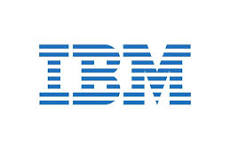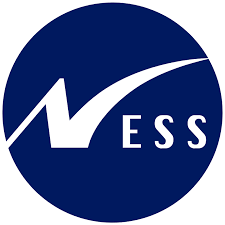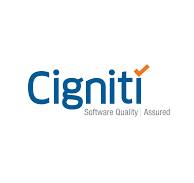Pega CDH Training In Hyderabad
- Flexible Learning
- Affordable Learning
- Hands - On Experience
- Daily Recordings
- Industry - Specific Skills
- One on One Mentorship

Our Provided Services
Pega CDH training in Hyderabad

Comprehensive Curriculum
A well-rounded curriculum covering essential topics and advanced concepts for career success.

Expert Instructors
Learn from industry experts with extensive experience and top credentials.

Practical Training
Hands-on training through projects and case studies for real-world applications.

Flexibility
Adapting to individual learning paces and preferences through flexible course structures.

Certification
Earn a recognized certification to validate your skills and boost your career.

Flexible Scheduling
Flexible class schedules including weekends, evenings, and online options.

Career Guidance and Placement Assistance
Career support including resume building, interview prep, and job placement opportunities.

Practical Experience
Opportunities for hands-on coding and implementation to solidify learning.
Cirruculum
Pega CDH training in Hyderabad
Overview Of NBA – Next Best Action
Real-Life NBA Usage
Decisioning Studios – CDH & Prediction Studio
PEGA’s DMSample Application
Creating Our New Decisioning Application
NBA Class Structures & Data Types.
Walkthrough Of ADM Service Infrastructure
Configuring The DDS Node In The Cluster
Overview Of Proposition Management
Adding A New Business Issue
Adding A New Business Group.
Adding A New Property.
Uploading Propositions From CSV.
Versioned Proposition Data
Unversioned Proposition Data
Getting Started With Decision Data
Copy Proposition Groups.
About Data Sets
Types Of Data Sets
Copy Proposition Groups.
About Data Flows
Types Of Data Flows – Internal & External
Configuring The Incoming Data
Applying Data Flow Actions – Compose, Convert, Merge
Applying Data Flow Actions – Strategy, Data Transforms,
Filters & Abstracts
External Data Flows
About Event Strategy
Differences Between Strategy & Event Strategy
Event Strategy Actions – Filter, Lookup, Split
Event Strategy Actions – Split & Join, Window, Aggregate
About Strategy
Strategy Shapes – Sub Strategy, Prediction, Import
Strategy Shapes – Business Rules, Decision Analytics
Strategy Shapes – Enrichment, Arbitration
Strategy Shapes – Selection, Aggregation
About Adaptive Models
Adaptive Models – Predictors
Adaptive Models – Context
Adaptive Models – Outcomes
Adaptive Models – Monitoring
Interaction History & Table
Customer Responses
Configuring Self-Learning Models
About Predictive Model
PMML Schema And Modelling
Predictive Models – Monitor
Predictive Models – Model
Predictive Models – Input Mapping
Predictive Models – Parameters
Analyzing Adaptive Model Performance
Analyzing Predictive Model Performance
Analyzing Text Extraction Performance
Propensity Score Calculation.
About Text Analyser
Text Analytics & Extraction
Analyzing A Text File
Defining And Managing Customer Actions
About Treatments & Types
Presenting Offers Via Treatments.
Outbound & Multi-Level Campaigns
Types Of Artifacts And Containers
Using The Real-Time Container
Action Arbitration And Intelligence

What is Pega CDH ?
Pega Customer Decision Hub (CDH) is a pivotal component of the Pega Platform, offering organizations the capability to deliver hyper-personalized customer experiences. CDH operates through real-time decisioning, harnessing artificial intelligence (AI) and machine learning algorithms to analyze vast troves of customer data and contextual information. By doing so, it enables organizations to tailor interactions across a spectrum of touchpoints, be it websites, mobile applications, call centers, or email. This agility in decision-making, underpinned by AI, ensures that customers receive pertinent offers, messages, and services precisely when they need them, fostering deeper engagement and satisfaction.
Prerequisites of CDH
- Understanding of Customer Relationship Management (CRM): A foundational understanding of CRM principles and practices is essential as Pega CDH focuses on delivering personalized customer experiences
- Knowledge of Data Analysis and Analytics: Proficiency in data analysis and analytics concepts is crucial as Pega CDH leverages customer data and contextual information to make real-time decisions.
- Familiarity with Artificial Intelligence (AI) and Machine Learning (ML): Basic knowledge of AI and ML concepts is beneficial as Pega CDH utilizes AI and ML algorithms to analyze customer behavior and predict preferences.
- Experience with Pega Platform: Familiarity with the Pega Platform, including its architecture, components, and capabilities, is advantageous as Pega CDH is a component of the Pega Platform.
- Understanding of Omni-Channel Customer Engagement: Knowledge of omni-channel customer engagement principles and practices is helpful as Pega CDH enables personalized interactions across multiple channels.
- Proficiency in Event-Driven Architecture: Understanding event-driven architecture and its implications for real-time decisioning is valuable as Pega CDH operates on an event-driven architecture.
- Experience with Analytics and Reporting Tools: Experience with analytics and reporting tools is beneficial for leveraging Pega CDH’s analytics and reporting capabilities to track customer interactions and measure campaign effectiveness.

Who should Learn ?
Marketing Professionals
Marketing professionals who are responsible for designing and executing customer engagement strategies can benefit from learning Pega CDH. It enables them to leverage AI-driven decisioning capabilities to personalize customer interactions, optimize campaigns, and drive better outcomes.
Customer Experience (CX) Managers
CX managers focus on enhancing the overall customer experience across different touchpoints. Learning Pega CDH equips them with the tools and techniques to deliver personalized and contextually relevant experiences that meet the needs and preferences of individual customers.
Data Analysts and Data Scientists
Data analysts and data scientists play a crucial role in analyzing customer data, deriving insights, and building predictive models. Learning Pega CDH allows them to apply their analytical skills to optimize decision strategies and drive better business outcomes.
CRM Specialists
Customer Relationship Management (CRM) specialists are responsible for managing customer relationships and maximizing customer lifetime value. Learning Pega CDH enables them to leverage AI-driven decisioning to personalize customer interactions, increase engagement, and drive customer loyalty.
Business Analysts
Business analysts bridge the gap between business requirements and technical solutions. Learning Pega CDH equips them with the skills to translate business needs into decision strategies, configure decisioning models, and measure the effectiveness of customer engagement initiatives.
IT Professionals
IT professionals involved in designing, implementing, and maintaining customer engagement systems can benefit from learning Pega CDH. It enables them to integrate decisioning capabilities into existing systems, ensure data security and privacy, and optimize system performance.
Product Managers
Product managers are responsible for defining product strategies and roadmaps. Learning Pega CDH empowers them to incorporate AI-driven decisioning capabilities into product offerings, differentiate products based on personalized customer experiences, and drive product innovation.
Consultants and Solution Architects
Consultants and solution architects provide advisory services and design technical solutions for clients. Learning Pega CDH allows them to recommend and implement AI-driven decisioning solutions that address clients’ business challenges and drive measurable results.
Job Opportunities
Pega Developer
Pega Developers specialize in designing, developing, and customizing Pega applications to meet specific business requirements. They are responsible for configuring application features, implementing business logic, and integrating Pega applications with other systems.
Pega Architect
Pega Architects design the overall architecture of Pega applications, ensuring scalability, performance, and alignment with business goals. They provide technical leadership, define best practices, and guide development teams in implementing Pega solutions.
Business Analyst
Business Analysts with expertise in Pega PRPC work closely with stakeholders to gather requirements, analyze business processes, and design solutions using Pega Platform. They translate business requirements into technical specifications and collaborate with developers to implement solutions.

Pega System Administrator
Pega System Administrators are responsible for installing, configuring, and maintaining Pega environments. They ensure the stability, security, and performance of Pega applications and provide support to users and developers.

Pega QA Engineer
Pega QA Engineers specialize in testing Pega applications to ensure their functionality, reliability, and performance. They design and execute test cases, identify defects, and work with developers to resolve issues.

Project Manager
Project Managers with knowledge of Pega PRPC oversee projects involving the development and implementation of Pega applications. They plan, organize, and coordinate project activities, manage resources, and ensure the successful delivery of Pega solutions.
Career Opportunities & Salaries in Pega CDH
-
Pega Developer
Responsible for designing and implementing Pega CDH solutions, integrating with other systems, and customizing applications to meet business needs. In the US, salaries typically range from $80,000 to $130,000 per year, with variations based on experience and location.
-
Pega Architect:
Involves designing end-to-end solutions using Pega CDH, overseeing technical aspects, and ensuring scalability and performance. Salaries for architects can range from $100,000 to $150,000 annually, again depending on location and experience.
-
Business Analyst
Works closely with stakeholders to gather requirements, define workflows, and translate business needs into Pega CDH solutions. Salary ranges for business analysts working with Pega CDH can be similar to developers, ranging from $70,000 to $120,000 per year.
-
Consultant/Implementation Specialist:
Helps clients implement and optimize Pega CDH solutions, providing guidance on best practices and ensuring successful deployments. Salaries for consultants can vary widely but often fall within the range of $90,000 to $140,000 per year, influenced by experience and location.
Pega CDH training in Hyderabad

Pega CDH Certifications
1. Review Course Materials
- Study the Course Content: Revisit all the training materials provided during the course, including any notes, videos, and practice exercises.
- Understand Key Concepts: Ensure you have a strong grasp of essential topics like decision strategies, predictive models, adaptive models, and how CDH integrates with other Pega components.
2. Utilize Additional Resources
- Pega Academy: Make use of the resources available on Pega Academy, such as the documentation, additional learning modules, and community forums.
- Practice Exams: Take advantage of any practice exams or quizzes to test your knowledge and identify areas that need more review.
3. Practical Experience
- Hands-on Practice: Apply what you have learned by working on real-life scenarios or projects. If possible, use a Pega environment to practice creating and managing customer decision strategies.
- Labs and Simulations: Participate in any available labs or simulation exercises to reinforce your learning.
4. Register for the Certification Exam
- Create a Pearson VUE Account: Pega certification exams are administered by Pearson VUE. Create an account on their website if you don’t already have one.
- Schedule the Exam: Find the Pega CDH certification exam in the Pearson VUE catalog and schedule a date and time that works for you.
- Pay the Exam Fee: Complete the registration by paying the required exam fee.
5. Prepare for the Exam Day
- Review Exam Policies: Familiarize yourself with the exam policies and procedures, including what to bring and what to expect on exam day.
- Technical Setup: Ensure your computer and internet connection meet the requirements if you are taking the exam online.
6. Take the Certification Exam
- Stay Calm and Focused: On the day of the exam, stay calm, read each question carefully, and manage your time effectively.
- Answer All Questions: Make sure to answer all questions to the best of your ability, even if you need to make an educated guess.
7. Post-Exam Steps
- Receive Your Results: After completing the exam, you will receive your results. If you pass, you will be awarded the Pega CDH certification.
- Review Feedback: If you do not pass, review any feedback provided, focus on improving weak areas, and schedule a retake.
8. Maintain Your Certification
- Stay Updated: Keep up with the latest updates and changes in Pega CDH by attending webinars, reading release notes, and participating in the Pega community.
- Continuing Education: Participate in additional courses or training to keep your skills current and relevant.
Certification Options:
1. Pega Certified System Architect (PCSA)
- Description: This is an entry-level certification that demonstrates your ability to participate in the design and development of Pega applications.
- Prerequisites: No prior Pega experience required, though completion of a Pega Academy course is recommended.
- Key Topics: Application development, case management, data modeling, and user interfaces.
2. Pega Certified Senior System Architect (PCSSA)
- Description: This certification is for those with advanced knowledge of Pega application development.
- Prerequisites: Pega Certified System Architect (PCSA) certification.
- Key Topics: Advanced Pega application design and development, integration, and performance tuning.
3. Pega Certified Lead System Architect (PCLSA)
- Description: The highest level of technical certification for Pega architects, demonstrating mastery in designing and implementing complex Pega solutions.
- Prerequisites: Pega Certified Senior System Architect (PCSSA) certification and significant hands-on experience.
- Key Topics: Advanced topics in application architecture, design, performance, and governance.
4. Pega Certified Decisioning Consultant (PCDC)
- Description: This certification focuses on the design and implementation of decisioning strategies using Pega CDH.
- Prerequisites: Basic knowledge of Pega and decisioning concepts; completion of the Pega Decisioning Consultant course is recommended.
- Key Topics: Decision strategies, predictive and adaptive models, next-best-action marketing, and Pega CDH components.
5. Pega Certified Marketing Consultant (PCMC)
- Description: This certification is targeted at individuals responsible for designing and implementing Pega marketing solutions.
- Prerequisites: Basic knowledge of Pega and marketing concepts; completion of the Pega Marketing Consultant course is recommended.
- Key Topics: Marketing campaigns, customer journey design, segmentation, and reporting using Pega Marketing.
6. Pega Certified Business Architect (PCBA)
- Description: This certification is for business analysts who design and manage business solutions using Pega applications.
- Prerequisites: No prior Pega experience required, though completion of a Pega Academy course is recommended.
- Key Topics: Business processes, case management, and application design.
7. Pega Certified Robotics System Architect (PCRSA)
- Description: This certification focuses on the use of Pega’s robotic automation tools to automate business processes.
- Prerequisites: Basic knowledge of Pega and robotic automation; completion of the Pega Robotics System Architect course is recommended.
- Key Topics: Robotic process automation (RPA), robotic desktop automation (RDA), and integration with Pega applications.
Benefits of Certification:
1. Career Advancement
- Increased Job Opportunities: Pega certifications are recognized globally, making you a more competitive candidate for job opportunities in various industries.
- Promotion and Salary Increase: Certified professionals often have a higher earning potential and are more likely to be considered for promotions and salary increases.
2. Skill Validation
- Demonstrated Expertise: Certification validates your expertise and knowledge in using Pega’s tools and technologies, giving you credibility in the field.
- Recognition of Skills: Earning a certification acknowledges your commitment to mastering Pega software and your dedication to continuous learning.
3. Professional Development
- Continuous Learning: Preparing for certification exams ensures you stay up-to-date with the latest Pega features and best practices.
- Enhanced Problem-Solving Skills: The certification process helps you develop advanced problem-solving skills through hands-on practice and theoretical knowledge.
4. Networking Opportunities
- Professional Community: Being certified allows you to join a community of Pega professionals, providing opportunities for networking, collaboration, and knowledge sharing.
- Access to Exclusive Events: Certified professionals often have access to exclusive Pega events, webinars, and conferences, where they can learn from industry leaders and peers.
5. Employer Benefits
- Improved Project Outcomes: Employers benefit from having certified professionals on their team, leading to better project outcomes and more efficient use of Pega technologies.
- Increased Credibility: Companies with certified employees are often viewed more favorably by clients and partners, enhancing the company’s reputation and credibility.
6. Personal Satisfaction
- Achievement: Earning a certification is a significant accomplishment that can boost your confidence and personal satisfaction.
- Goal Setting: The process of preparing for and achieving certification helps you set and achieve professional goals, contributing to your overall career growth.
7. Market Demand
- High Demand for Pega Skills: As more organizations adopt Pega solutions for their business processes, the demand for certified Pega professionals continues to grow.
- Versatility Across Industries: Pega certifications are valuable in various industries, including finance, healthcare, insurance, and telecommunications, providing versatility in your career options.

Certification
Pega offers certification programs for developers, architects, analysts, and specialists, validating skills in application design, development, and domain-specific areas like decision management and robotics. Certifications such as CSA, CSSA, and CLSA demonstrate proficiency in Pega technologies, enhancing career prospects and credibility within the Pega ecosystem.
Mode Of Training
Pega CDH training in Hyderabad
Students Got Placed





What our Students Say about us
Pega CDH training in Hyderabad
Our Other Courses
Pega CDH training in Hyderabad

Prompt Engineering
The Prompt Engineering Course offers essential skills for managing projects efficiently and meeting tight deadlines without sacrificing quality. Gain practical expertise and strategic insights to excel in fast-paced engineering environments.

Digital Marketing
Digital marketing employs online channels like SEO, social media, and email to engage audiences, foster brand awareness, and drive conversions. It optimizes visibility and boosts business growth in the digital sphere.

Full Stack Development
creating websites and applications using HTML, CSS, JavaScript, and frameworks like React. They learn to design interactive sites, work with databases, and optimize performance, preparing for careers in Full stack development.
Pega CDH is a platform that helps businesses make real-time, personalized decisions for customer interactions. It is crucial for enhancing customer engagement and driving business outcomes.
This training is ideal for business analysts, system architects, IT professionals, and marketing specialists who are involved in customer engagement and decisioning processes.
Basic knowledge of Pega platform, decision management, and customer engagement concepts is beneficial but not mandatory. Familiarity with business processes and IT systems can also be helpful.
The course typically covers topics like decision strategies, data management, customer analytics, AI-driven decisioning, campaign management, and implementation best practices.
The duration of the training varies, but it typically ranges from 2 to 4 weeks, depending on the depth of the course and the training schedule.
Training can be conducted through online live classes, self-paced video tutorials, or in-person classroom sessions, depending on the institute's offerings.
Yes, practical sessions and hands-on projects are usually included to provide real-world experience and enhance understanding of theoretical concepts.
Most institutes offer a certificate of completion. Additionally, they may prepare you for the Pega Certified Decisioning Consultant (PCDC) exam.
The cost varies depending on the training provider, mode of training, and course duration. It typically ranges from a few hundred to a couple of thousand dollars.
Enrollment procedures usually involve filling out an application form on the institute's website, selecting the preferred course schedule, and making the necessary payment.




